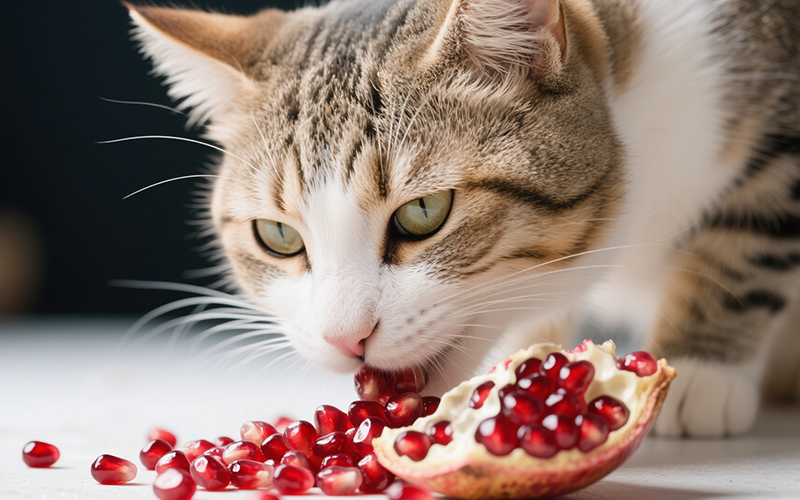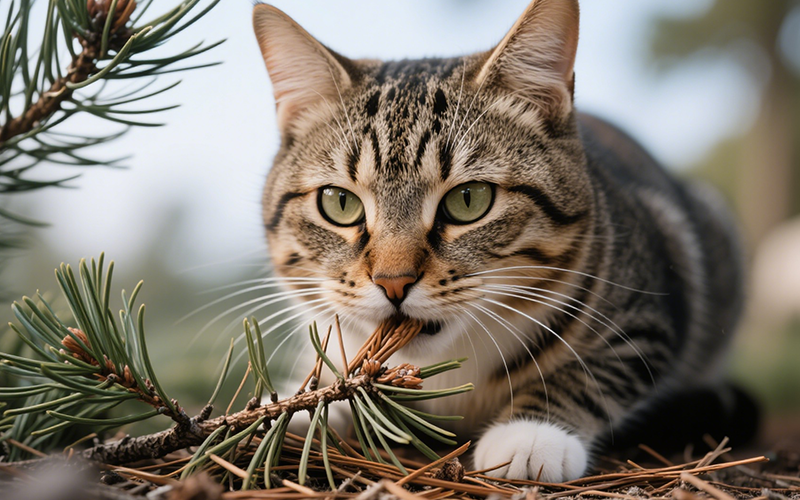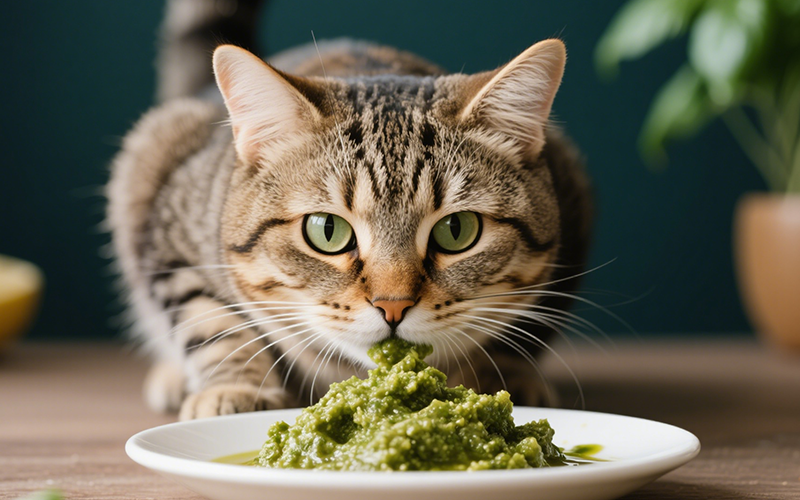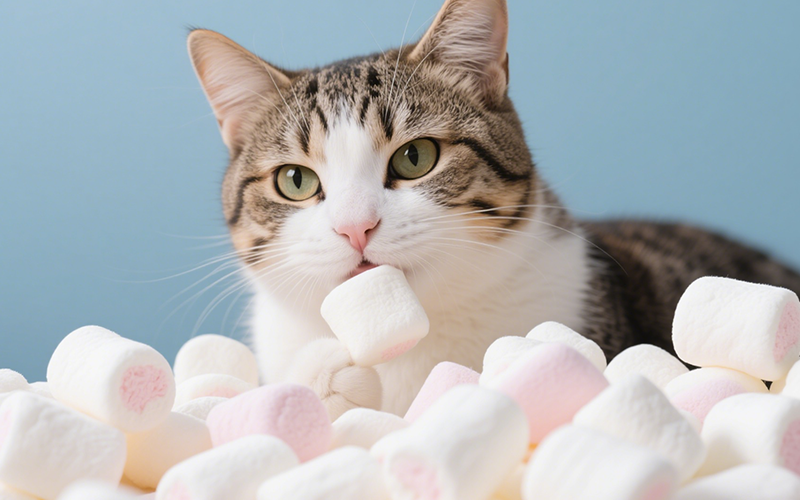Can Cats Eat Cockroaches? Understanding the Safety of Eating Insects for Your Feline
- 12 Mar 2025 13:51
As a cat owner, you may have noticed your feline friend showing interest in insects that scuttle across the floor, particularly cockroaches. Cats are natural hunters, and it’s not unusual for them to chase and catch small creatures. But the question remains: can cats eat cockroaches? Let’s dive into the potential risks and safety considerations when it comes to your cat consuming these insects.

Are Cockroaches Safe for Cats to Eat? 🦗
In general, cockroaches are not toxic to cats. If your cat catches and eats a cockroach, they’re unlikely to experience immediate poisoning or harm from the insect itself. However, there are a few important factors to consider before allowing your cat to snack on cockroaches.
1. Potential for Parasites or Disease 🦠
One of the main concerns with eating cockroaches is that they can carry diseases and parasites that can be harmful to your cat. Cockroaches are known to pick up bacteria from places like garbage, sewage, or decaying organic matter. When ingested by your cat, these pathogens could lead to gastrointestinal issues, such as vomiting, diarrhea, or infections.
Additionally, cockroaches can be hosts to various parasites like tapeworms or intestinal worms, which could be transferred to your cat through ingestion. These parasites can cause intestinal discomfort and potentially lead to more serious health issues if left untreated.
2. Pesticides and Chemicals 🧴
Another risk of your cat eating cockroaches is the potential presence of pesticides or chemicals. If the cockroach has been exposed to insecticides or other household chemicals, these could be toxic to your cat if ingested. Even if the cockroach appears to be dead, residue from these chemicals could still pose a significant health risk to your feline.
3. Choking or Digestive Blockages ⚠️
Although rare, there is also the risk of choking or causing a digestive blockage if the cockroach is large or if your cat swallows it without chewing properly. Cockroaches have hard exoskeletons that might not be fully broken down during digestion, potentially causing a blockage in your cat's intestines.
Should You Allow Your Cat to Eat Cockroaches? 🤔
While it's not unusual for cats to eat insects as part of their hunting instinct, cockroaches should be avoided as a food source for your cat. The risks associated with consuming cockroaches—such as exposure to diseases, chemicals, and parasites—outweigh any potential benefits. If your cat is particularly fond of chasing cockroaches or other insects, there are safer ways to satisfy their natural hunting instincts.
Safer Alternatives for Your Cat’s Hunting Instincts 🐾
If you want to give your cat an enjoyable and safer alternative to eating cockroaches, consider these options:
1. Catnip Toys 🌿
Catnip toys are a great way to engage your cat’s hunting instincts in a safe and fun way. Catnip is a natural herb that stimulates most cats, causing them to chase, bat, and play. It’s a safe and enjoyable alternative to insects.
2. Interactive Playtime 🧸
Spend time with your cat using interactive toys, such as feather wands, laser pointers, or balls. This type of play stimulates your cat’s hunting instincts and provides both physical and mental exercise.
3. Cat Grass or Catnip Plants 🌱
Growing cat grass or catnip in your home can offer a healthy and safe way for your cat to satisfy their need to "hunt" and nibble on plants. Both options are safe and provide enrichment for your cat.
4. Prey-Based Cat Treats 🍖
Some pet stores offer prey-based cat treats that mimic the taste and texture of real prey, such as freeze-dried mice, chicken, or fish. These treats are safe, nutritious, and cater to your cat’s hunting instincts without the risks of eating cockroaches or other pests.
What to Do if Your Cat Eats a Cockroach by Accident 🐾
If your cat eats a cockroach, don’t panic. In most cases, they will likely be fine. However, it’s important to monitor your cat for any signs of distress, such as:
Vomiting or diarrhea
Lethargy
Loss of appetite
Signs of discomfort
If your cat shows any unusual symptoms, it’s best to contact your vet for advice. If you know that the cockroach was exposed to pesticides or chemicals, or if your cat ingested a large number of cockroaches, it’s important to consult your vet immediately.
Tips to Prevent Your Cat from Eating Cockroaches 🛑
To reduce the likelihood of your cat eating cockroaches, consider the following tips:
Keep Your Home Clean: Cockroaches are often attracted to food crumbs and trash. Make sure your home is clean and free of food debris to avoid attracting insects.
Seal Entry Points: Close cracks or gaps in windows, doors, and walls to prevent cockroaches from entering your home.
Use Safe Pest Control: If you need to control pests, use pet-safe methods like traps or natural repellents instead of chemical pesticides. Always ensure any pest control methods you use are safe for your cat.
PettureX: Your Pet Health Assistant 🐾
If you're ever uncertain about what your cat can or can’t eat or need help with any health concerns, PettureX is a reliable AI-powered pet health assistant available 24/7. PettureX can provide personalized advice and help you make informed decisions about your cat’s well-being.
Conclusion
Can cats eat cockroaches? While cockroaches are not inherently toxic to cats, they pose significant risks, including the potential for diseases, parasites, pesticides, and digestive problems. It’s best to keep your cat from eating cockroaches and instead provide safer, healthier alternatives that engage their natural hunting instincts.
By offering your cat interactive play, safe treats, and a clean environment, you can ensure their well-being while still allowing them to enjoy their predatory behaviors. If you're ever concerned about your cat’s health, PettureX is here to provide expert guidance and advice. 🐱💙
Related

Pomegranate Peril: Can Cats Eat the Seeds Safely? A Vet-Reviewed Guide
- 25 Apr 2025
Prickly Problem: Can Cats Eat Pineapple Leaves Safely? A Vet-Reviewed Risk Analysis
- 25 Apr 2025
The Prickly Truth: Can Cats Eat Pine Needles Safely? A Guide for Concerned Owners
- 24 Apr 2025
Pesto & Paws: A Dangerous Mix? Can Cats Eat Pesto Safely?
- 24 Apr 2025
Persimmons and Paws: Can Cats Safely Eat This Autumn Fruit? A Vet-Reviewed Guide
- 23 Apr 2025
Nutritional Yeast for Cats: Savory Sprinkle or Health Hazard? A Vet-Reviewed Guide
- 23 Apr 2025
Marshmallows and Cats: A Puffy Problem? Why Vets Say No to This Sugary Snack
- 22 Apr 2025
Kefir for Kitties? A Veterinarian-Reviewed Guide to Safety, Benefits & Risks
- 22 Apr 2025
The Burning Question: Can Cats Eat Jalapenos? A Comprehensive Safety Guide
- 21 Apr 2025
Cool Temptation: Can Cats Eat Ice Cream Safely? The Vet-Backed Truth
- 21 Apr 2025
